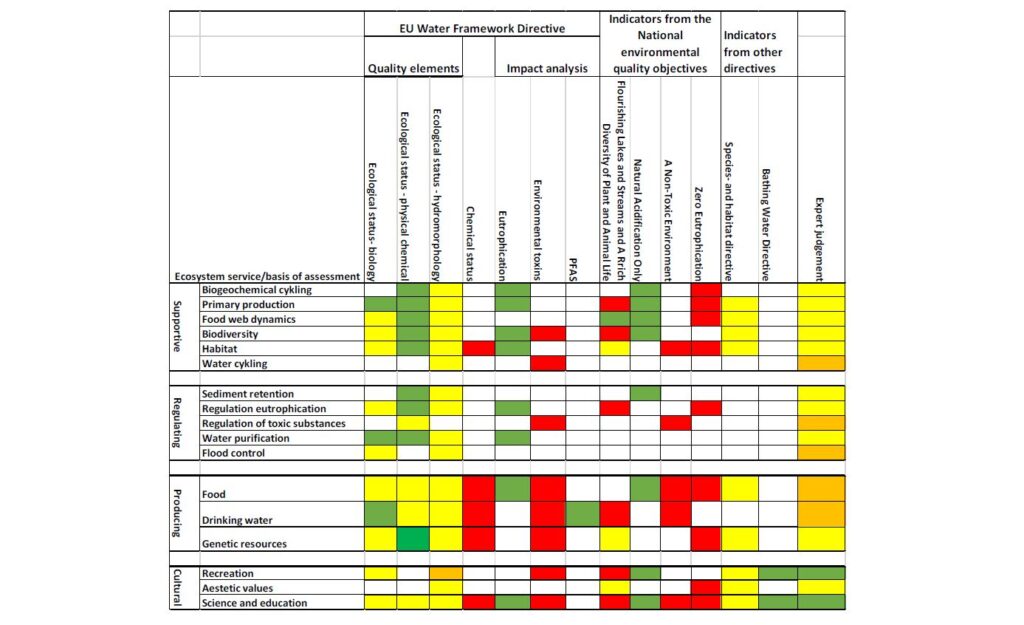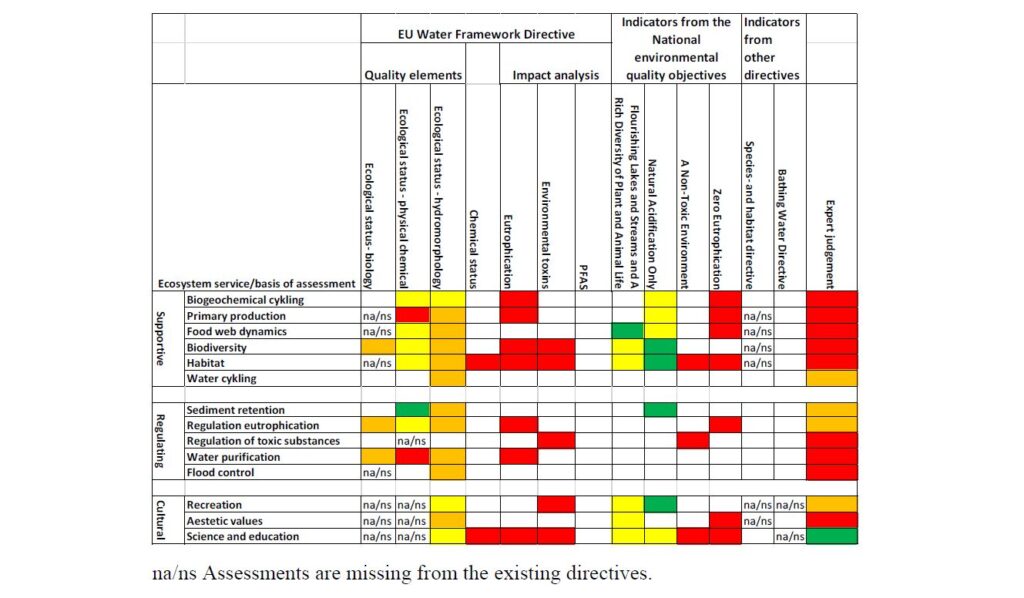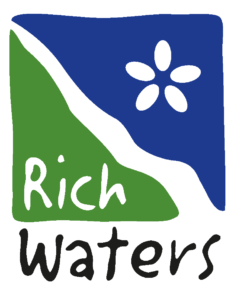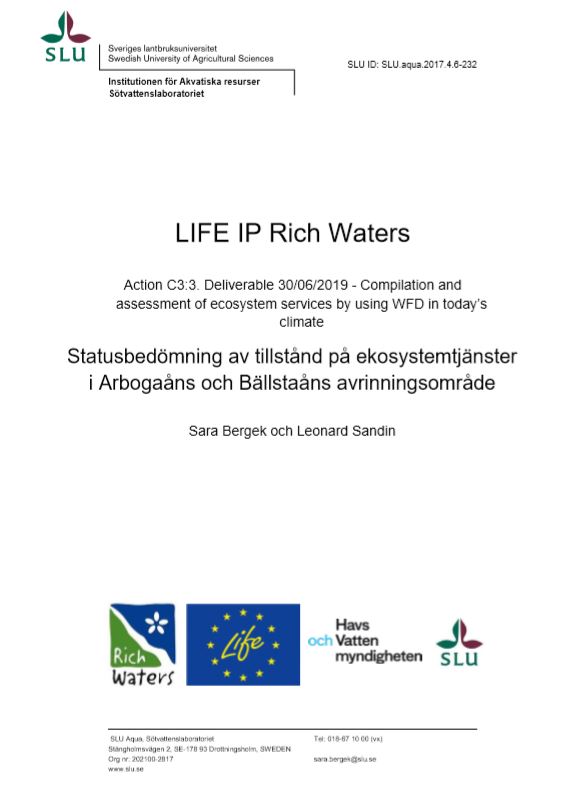Deliverable 30/06/2019 (Action C3)
Summary
Ecosystem services, the benefits ecosystems and its organisms provide to humans, is today a frequently used term. Although the term ecosystem services is well established, there is a need to continue the development of identification, assessment and methodology to monitor changes in the state of ecosystem services.
In this report, which has been produced within the project LIFE IP Rich Waters, funded by the EU / Life and the Swedish Agency for Marine and water management, methodology for assessing ecosystem services in water is tested based on potential indicators from primarily the EU Water Framework Directive and the National environmental quality objections.
The study is done in two case study areas, the Arbogaån and Bällstaån river basins. In two workshops with local authorities, 19 ecosystem services were identified as important in the Arbogaån river basin and 16 in Bällstaån’s river basin. Already developed methodology with different indicators (i.e. ground for assessment) taken from already existing directives; primarily the Water Framework Directive and the National environmental quality objections, was tested on these ecosystem services.
The Arbogaån river basin includes a number of different lakes and watercourses, and the method of assessing the ecosystem services at the indicator level is similar to the regional assessments made in a previously published report. As long as monitoring data exists, as in the Arbogaån river basin, the indicators from the existing directive for the supportive ecosystem services can more or less represent the status of the ecosystem services. Bällstaån’s river basin, on the other hand, consists only of a short watercourse. Much monitoring data is missing, mainly for ecological status. The overall assessment for each ecosystem service was made as an expert judgement. For Arbogaån’s catchment area, the majority of ecosystem services were assessed as having moderate status in the expert judgement. Only two ecosystem services, Recreation and Science and education were judged to have good status.
For Bällstaån’s river basement, on the other hand, most ecosystem services were assessed as having poor status. The water quality is poor in the watercourse which affects many important ecosystem services in the water. The overall assessment and status of the ecosystem services should be seen as preliminary. During fall 2019, the assessment will be supplemented by a final expert judgement of local and national experts. The work provides a basis for the ecosystem services’ current state in the study area. It will be further developed and used in action C3 and C3:3 as a base line to project how future climate change affects the state of ecosystem services and how to minimize potential risks.
Table i. Assessment based on indicators and the overall preliminary expert assessment of the ecosystem services in Arbogaån river basin. See paragraph 2 for an explanation of the assessments.

Table ii. Assessment based on indicators and the overall preliminary expert assessment of the ecosystem services in Bällstaån river basin. See paragraph 2 for an explanation of the assessments.




